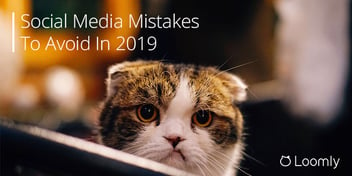Social Media Marketing FAQ
There’s a growing trend of marketing and advertising budgets shifting from traditional to digital & social media marketing.
In particular, social media marketing has evolved from a niche to mainstream strategy for companies of all shapes and sizes, consuming a substantial chunk of budget, efforts, and jobs.
In the FAQ below, the Loomly Team answers all your burning questions on social media marketing.
Table of contents
- What is social media marketing?
- What is a social media marketing strategy?
- What is the most powerful social media marketing strategy?
- How does social media marketing work?
- How is social media marketing done?
- What are the benefits of social media marketing?
- What are the challenges of social media marketing
- How much does social media marketing cost?
- What budget do I need for social media marketing?
- Who needs social media marketing?
- Is social media marketing right for small businesses?
- Is social media marketing right for my business?
- Which social media is best for business and marketing?
- How do I get started with social media marketing?
- How can I improve my social media marketing strategy?
- What are some examples of social media marketing?
- How do I become a social media marketer?
- Why is social media so good for marketing?
- What are the 7 functions of social media?
- What is the most effective social media marketing?
- What is the best social media marketing tool?
- What are the best social media marketing books?
- What are the best social media marketing events?
- How to become a social media marketing manager?
- How to learn social media marketing?
- Who uses social media marketing?
- When did social media marketing start?
What is social media marketing?
Social media marketing activities include publishing content on your social media profiles, listening to and engaging with your followers, running social media ads, and analyzing your results.
Social media marketing activities include publishing content on your social media profiles, listening to and engaging with your followers, running social media ads, and analyzing your results.
What is a social media marketing strategy?
A social media marketing strategy summarizes everything you plan to do and hope to achieve on social media. You’ll want to consider:
Your goals
Choose social media marketing goals that align with your business and marketing goals.
For example, you may want to use social media marketing to:
- Increase brand awareness
- Drive website traffic
- Generate leads and revenue
- Build a community
- Provide a customer support service
Your audience
You’ll need to know who your target audience is so that you can create the right type of content to attract and engage them and understand which social platforms they use.
The social media platforms they use
Decide which social media platforms fit your goals and audience rather than trying to be everywhere.
The major platforms are Facebook, Instagram, Twitter, LinkedIn, Pinterest, and YouTube. Other popular networks include TikTok, Messenger, WhatsApp, and WeChat.
The latest figures from Statista show the most popular social media networks worldwide ranked by the number of monthly active users:
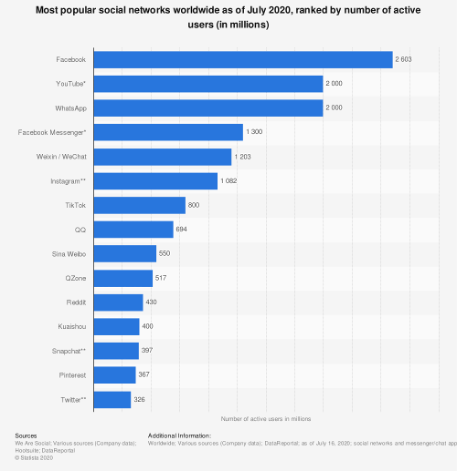
The type of content you want to publish
Decide what type of content you want to share.
- What type of content fits your brand?
- Will it be entertaining or educational?
- Serious or light-hearted?
- What type of content attracts and engages your audience?
- Do they prefer text, images, videos, or stories?
Decide how often to publish your content and plan your social media calendar.
The results from your strategy
Always allow time to evaluate and adjust your social media strategy based on the results of your marketing.
What is the most powerful social media marketing strategy?
The most powerful social media marketing strategy depends on several factors, such as the products/services being sold, the audience being targeted, and the budget and expertise of the marketing team.
However, best practice usually includes:
- Always start by setting your business goals, target market, brand identity, and editorial line.
- Plan content ahead of time to tell a consistent story that unfolds with every new post.
- Produce original, high-quality content.
- Collaborate with your team (ideally a cross-functional team that brings a holistic perspective to the content publishing process) to ensure that only on-brand, proofread, appropriate, and compliant content is published.
- Manage your community by responding quickly and accurately at scale.
- Measure the response of your audience to the content you publish, as a way to learn what resonates with them using advanced analytics. Fine-tune your communication to convey your brand values in a way that engages them the most, in a continuous improvement cycle.
How does social media marketing work?
Social media marketing involves promoting your content and engaging with your target audience on social media platforms like Facebook, Instagram, Twitter, LinkedIn, and Pinterest. Digital marketers use social media to increase brand awareness, generate more leads, and improve customer engagement.
How is social media marketing done?
You can start with the strategy outlined above.
Next, we recommend creating a social media workflow, which defines people’s responsibilities throughout the publishing process and implements repeatable steps and deadlines for each editorial period.
You can break down your social media team workflow into ten individual stages:
- Ideation: generating ideas for your social media campaign.
- Asset gathering: collecting the necessary resources for your updates.
- Copywriting: creating the text-based parts of your updates.
- Proofing: ensuring the updates are error-free.
- Approval: getting the thumbs up for your updates.
- Revising: reworking any rejected updates.
- Scheduling: adding updates to your social media calendar.
- Post promotion: creating awareness for your posts.
- Engagement: interacting with your audience.
- Analysis and learning: interpreting the data, assessing performance, informing the next batch of updates.
Then you’ll need to assign people to each stage:
- If you are working for a large company, this could be seven different teams spread across multiple offices.
- If you are marketing for a mom-and-pop shop, it might only be two people who do everything.
With a social media workflow in place, it’s easier to get your social media marketing done.
What are the benefits of social media marketing?
The CMO Survey highlighted social media as a tool to accomplish key strategic objectives for companies:
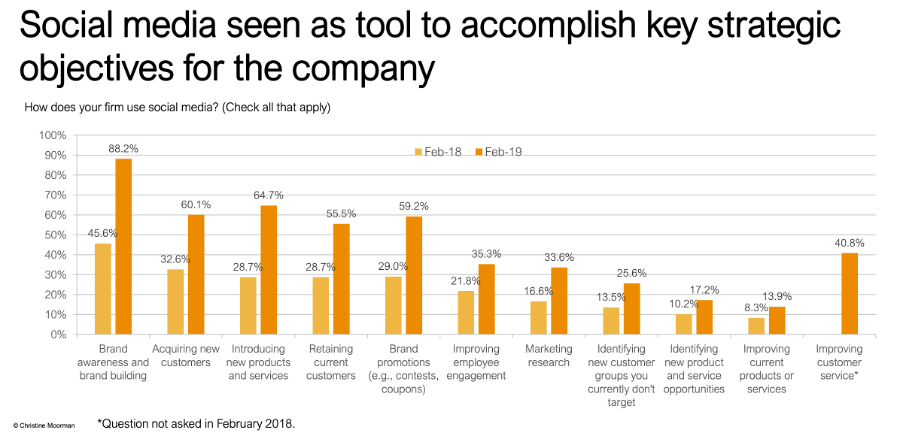
Here are a few more benefits:
Brand building
- Increase brand awareness
- Improve brand loyalty
- More brand authority
- Establish thought leadership
Growth
- Increase inbound traffic
- Generate more leads
- Higher conversion rates
- Boost organic search visibility
Communication
- Provides direct access to customers
- Build a community
- Improve customer satisfaction
Insights
- Gain marketplace insights
- Monitor brand and competitors
- Learn more about your customers
- Identify new product/service opportunities
Advertising
- Audience targeting/retargeting
Reporting
- Measure the impact of your campaigns
- Prove ROI and cost-effectiveness
What are the challenges of social media marketing?
Here are our top 15 challenges of social media marketing:
- Developing a social media strategy
- Increasing audience engagement
- Declining organic reach
- Rising costs of advertising
- Cutting through the noise
- Building authentic connections
- Extending your reach
- Creating original content
- Creating high-quality visuals
- Getting people to share
- Complying with industry regulations
- Adapting to algorithm changes
- Getting noticed in overcrowded feeds
- Keeping up with the latest trends
- Lack of people and resources
How much does social media marketing cost?
Short answer: it varies.
Professional social media marketing can cost you anywhere from $1,000 per month to $20,000 per month.
It depends on the experience level of the social media management agency you hire, the size of your business, the suite of services you require, and many other factors.
Here are a few examples:
How much does a social media strategy cost?
Creating a comprehensive social media marketing strategy and outsourcing all work for all channels (with a minimum of two social networks) costs an average of $4,000-$7,000 per month – that’s about $200 to $350 per day.
How much does Facebook marketing cost?
To set up a new Facebook account and provide limited ongoing training to business partners, agencies charge an average of $2,500-$5,000 per month.
How much does Twitter marketing cost?
Launching a new Twitter account, complete with setup and outsourcing content creation/consumer interaction, costs an average of $2,000-$4,000 per month.
How much does marketing with other social media channels cost?
If you add more channels, like Instagram, Pinterest, LinkedIn, or Snapchat, you expect to pay an additional $1,000 per channel.
How much should you expect to spend on social media advertising costs?
In general, you should expect to pay anywhere between 10%-20% of the total ad buy to have an agency manage your campaigns for you.
What budget do I need for social media marketing?
According to the 2019 CMO Survey, social media spending is expected to rise by 73% over five years:
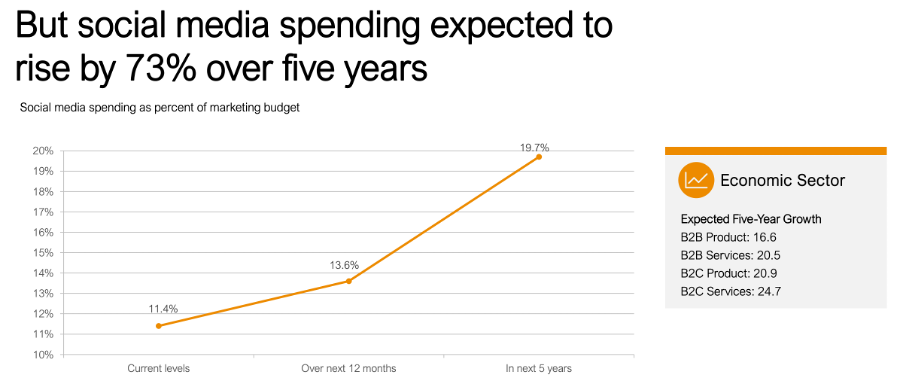
The percentage of marketing budget on social media over the five years breaks down as follows:
There’s no one magical formula for a successful social media budget. But according to We Are Sculpt, the simplest calculation is as follows:
- Take 5-30% of your desired gross revenue goal and allocate it to marketing.
- Take 10-25% of your marketing budget and allocate it to social media marketing.
- Assign 60% of that budget to brand building activities and 40% to sales activation.
Furthermore, there are five main areas to consider in your social media budget:
- Strategic Planning: Setting the direction for paid and organic social media.
- Content Creation: Producing assets to be shared on social media.
- Community Management: Managing the posting of content and replies.
- Paid media: Managing ad spend, like boosted posts and acquisition campaigns.
- Measurement: Creating reports and tracking success.
For each activity, ask yourself two key budget questions:
- What tools do we need to do the job?
- Which activities do we need to outsource?
Who needs social media marketing?
Everyone.
Every business needs a social media presence.
It doesn’t matter if you run a small mom-and-pop shop or a large national company. Social media is an essential piece of your business marketing strategy.
Social platforms help you connect with your customers, increase awareness about your brand, and boost your leads and sales. With more than three billion people around the world using social media every month, the users and engagement on major platforms just keep increasing.
Is social media marketing right for small businesses?
Social media marketing is right for all businesses, large and small.
Many small businesses focus on individual customers and building a community. Social media platforms are ideal for that as you can connect with and engage customers one-to-one or in groups. You can build brand awareness and retain customer loyalty by engaging with your audience.
Is social media marketing right for my business?
To see if social media marketing is right for your business, ask yourself the following:
- Do we have time?
- Do we have the right personnel?
- Do our target customers use social media?
- Do we have the budget to do it thoroughly?
- Can we afford NOT to use social media marketing?
Some of the most common reasons businesses use social media include:
- Building brand awareness
- Driving website traffic
- Increasing revenue
- Lowering marketing costs
Today’s consumers prefer to purchase from brands that they know, like, and trust. You can use social media to build those relationships. And in the long-run expect to grow revenue.
Here’s why social media marketing could be right for your business:
- 77% of B2C companies and 43% of B2B companies have acquired customers through Facebook.
- 93% of Pinterest users use the platform to plan or make purchases.
- More than 33% of Instagram users will make a mobile purchase.
- Customers who engage with brands over social media spend 20%-40% more money with those brands than other customers.
- 71% of consumers who have had a positive experience with a brand on social media are likely to recommend the brand to their friends and family.
- 81% of the US population has at least one social media profile, and over half have two or more.
Which social media is best for business and marketing?
There’s no shortage of social media networks. But deciding which are best for your business comes down to your social media marketing strategy.
- What are your social media goals?
- What social media platforms is your target audience using?
- What social media platforms are your competitors using?
- What type of content will you be creating?
- What social media marketing budget do you have?
Decide which social media platforms fit your goals and audience rather than trying to be everywhere.
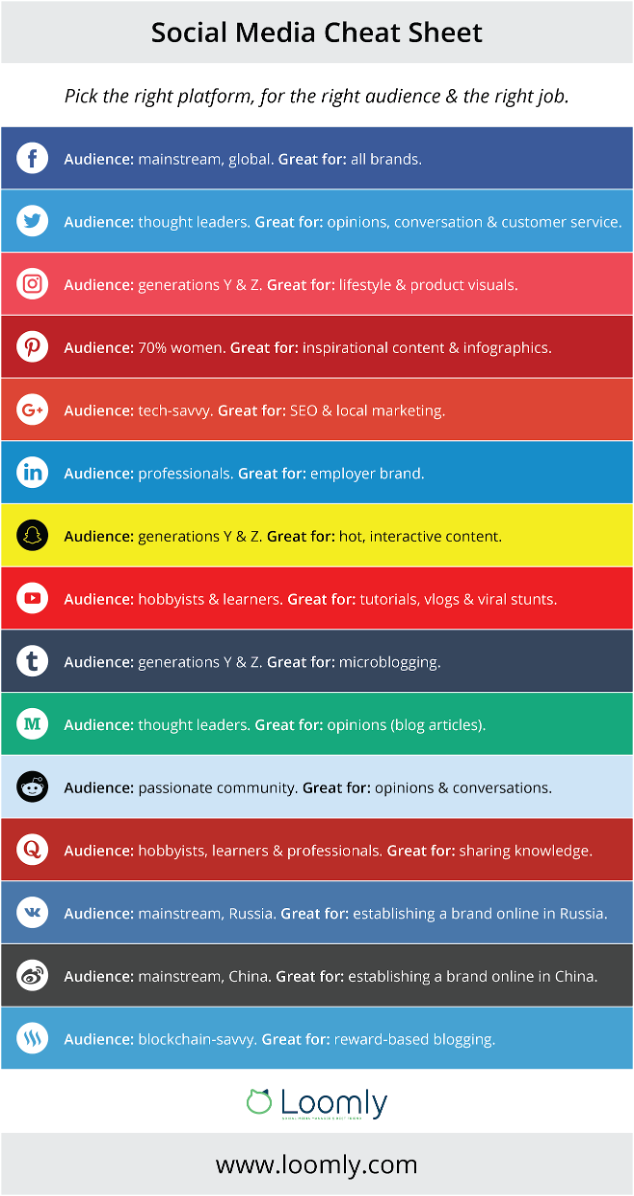
How do I get started with social media marketing?
Follow this 6-step process for each social media platform you decide to use.
- Create and optimize the account/profile.
- Plan your content ahead of time, so it tells a consistent story.
- Produce and publish original, high-quality content, including ads.
- Engage with your audience – respond to comments and messages.
- Measure your results and adjust accordingly.
- Rinse and repeat.
Here’s a list of resources to learn more and dive deeper on how to get started:
- How to Learn Social Media Marketing: 39 Resources for Beginners
- The Guide to Social Media Marketing For Businesses
- Loomly Social Media Marketing Hub
- Loomly Courses
How can I improve my social media marketing strategy?
Try these 7 creative ways to improve your social media marketing strategy:
- Develop a multichannel approach.
- Invest in influencer marketing.
- Engage commenters as quickly as possible.
- Amplify reach through look-alike audiences.
- Measure strategy success through on-platform and on-site measurement.
- Create a clear and unique brand identity.
- Find creative ways to delight people.
What are some examples of social media marketing?
Here are 15 social media marketing examples to inspire you, featuring:
- Airbnb
- Amazon
- HBO
- Houseparty – Fortnite Trivia Challenge
- BuzzFeed Tasty – Saturday Night Seder
- Netflix – Wanna Talk About It?
- Zoom – Virtual Background Competition
- Harvard Business Review
- Starbucks #ExtraShotOfPride Campaign
- Dove #ShowUs Campaign
- Daniel Wellington #WheresWellington Campaign
- British Army’s #YourArmyNeedsYou Recruitment Campaign
- Essie
- Moonpie and Greggs
- Gillette – The Best Men Can Be
How do I become a social media marketer?
Here’s how to become a social media marketer:
Develop your basic skills
- Focus on three main social media platforms.
- Research your customer base.
- Observe the marketing strategies of successful companies.
- Train yourself to post and update content regularly.
- Intern or volunteer to build experience.
Build a professional network
- Join social groups in your industry.
- Cultivate your online presence.
- Develop meaningful relationships with other marketers.
- Collaborate with other social media marketers.
Land a job
- Collect data and testimonials to prove your skills.
- Put together a portfolio.
- Protect your online image.
- Write a unique resume.
- Apply for jobs.
Why is social media so good for marketing?
There are a few reasons why social media is ideal for marketing:
- Accessibility/affordability: There’s a variety of platforms, and you can start with a small budget, unlike TV, for instance.
- Scalability: You can reach 2B+ people on Facebook.
- Interaction: It’s a two-way street where you can directly engage with your audience. Plus, you can learn from them, rather than merely pushing messages out to them.
- Measurability: You can track everything, learn from the results, and improve.
What are the 7 functions of social media?
The 7 functional building blocks of social media are:
- Identity: people share information about themselves with other users.
- Conversations: people communicate with other users.
- Sharing: people pass along digital content to other users.
- Presence: people share their status, location, or availability.
- Relationships: people relate and connect with other users.
- Reputation: people see the social standing of others and share their own.
- Groups: people form communities based on similarities.
What is the best social media marketing tool?
According to G2 Crowd, the best social media management tools, ranked by user satisfaction, are:
- Zoho Social
- Loomly
- Sprout Social
- HubSpot Marketing Hub
- Sendible
Loomly is also a leader in the category according to the G2 Crowd Fall 2020 report:
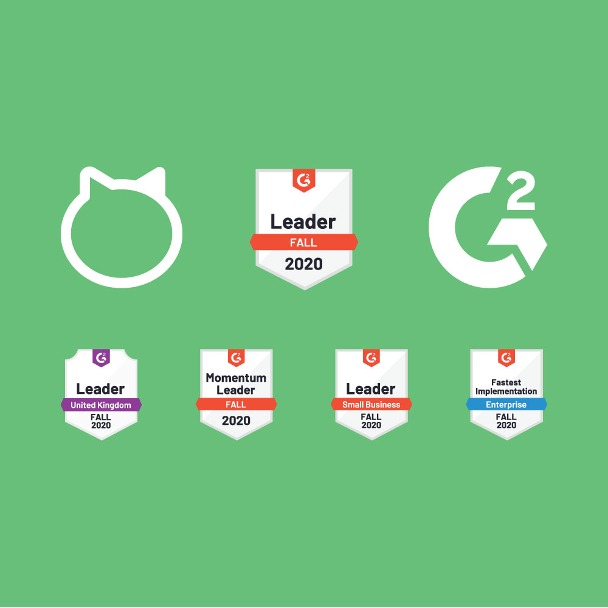
According to Capterra, the best social media management tools include:
- Monday.com
- Loomly
- Falcon.io
- eClincher
- Coosto
What are the best social media marketing books?
Here are the 10 social media books every marketer should read, as recommended by Loomly.
Here are a further nine social media marketing books, as recommended by HubSpot.
What are the best social media marketing events?
Social Media Examiner maintains a list of the best social media marketing events and conferences you might be interested in.
How to become a social media marketing manager
Here are 10 tips from social media professionals on how to become a social media marketing manager:
- Consider a degree in communications or marketing.
- Stay versed in industry tools and tech.
- Look for social media opportunities everywhere.
- Remember, you’re always being watched.
- Never stop learning and adapting.
- Be comfortable working and learning on your own.
- Find brands you admire, and follow them.
- Build an online portfolio and show it off.
- Add experience to your resume with volunteer work.
- Demonstrate good time management skills.
How to learn social media marketing
HubSpot has collated 39 resources to help you learn social media marketing:
- Social Media Marketing Blogs
- Social Media Publishing Templates
- Social Media Marketing Ebooks
- Social Media Marketing Courses
- Social Media Marketing Videos
- Social Media Podcasts
- Slideshows & Infographics About Social Media
- Social Media Marketing Books
- How to Start Social Media Marketing
Who uses social media marketing?
Here’s a breakdown of the social media platforms, with the number of monthly active users (MAUs), the make-up of their audience, and their ideal use:
- Users: 2.6 billion.
- Audience: Mainstream, global.
- Great for: All brands.
- Users: 326 million.
- Audience: Thought leaders.
- Great for: Opinions, conversation, and customer service.
- Users: 1 billion.
- Audience: Generations Y & Z.
- Great for: Lifestyle and product visuals.
- Users: 367 million.
- Audience: 70% female. Primarily older millennials and younger baby boomers.
- Great for: Inspirational content and infographics.
- Users: 690 million members (not MAUs).
- Audience: Professionals.
- Great for: Employer brand.
Snapchat
- Users: 397 million.
- Audience: Generations Y & Z.
- Great for: Hot, interactive content.
TikTok
- Users: 800 million.
- Audience: Youngsters in their teens and twenties.
- Great for: Short, looping 15 or 60-second videos.
YouTube
- Users: 2 billion.
- Audience: Hobbyists and learners.
- Great for: Tutorials, vlogs, and viral stunts.
Tumblr
- Users: 452 million blogs (not MAUs).
- Audience: Generations Y & Z.
- Great for: Microblogging.
Medium
- Users: 60 million.
- Audience: Thought leaders.
- Great for: Opinions (blog articles).
- Users: 430 million.
- Audience: Passionate community.
- Great for: Opinions and conversations.
Quora
- Users: 300 million.
- Audience: Professionals, hobbyists, and learners.
- Great for: Sharing knowledge.
VKontakte
- Users: 65.2 million.
- Audience: Consists mostly of Russian millennials.
- Great for: Establishing a brand online in Russia.
Sina Weibo
- Users: 550 million.
- Audience: Consists mostly of Chinese.
- Great for: Microblogging (like Twitter. Establishing a brand online in China.
When did social media marketing start?
The earliest social media platforms placed all of their emphasis on individuals. But in the mid-2000s, networks started to connect individuals with brands – and the world of social media marketing exploded.
Facebook, in particular, led the way in driving marketers to social. When it opened up its network to the whole world in September 2006, many brands created Pages. In 2007, it launched its first self-service ads platform and reached $150 million in ad revenue within a year.
Other networks followed suit, with Twitter launching promoted content and accounts in 2010. But no competitor really managed to unsettle Facebook as the number #1 platform.

Manage all your social media accounts in one place.
Craft, schedule, & auto-post content to all your social channels, then track analytics and manage interactions from a single, easy-to-use dashboard.
Social Media Marketing in a Nutshell
Social media marketing is one of the most cost-effective forms of digital marketing. With millions of people using the various platforms daily, marketers have a ready-made audience to tap into. The key is for brands to choose the right platform, for the right audience, and the right job.



